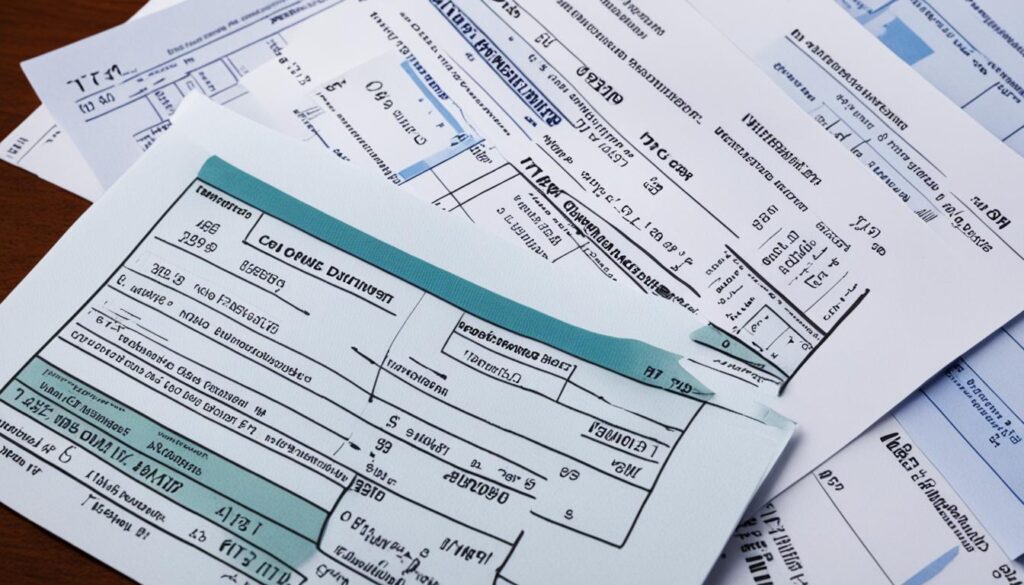Are you wondering if tutors are tax deductible? Whether you’re a student seeking extra help or a parent investing in your child’s education, understanding the potential tax benefits of hiring a tutor can make a significant difference in your finances.
In this comprehensive guide, we will delve into the secret world of tutor tax deductions. We’ll uncover the IRS rules and regulations, the eligibility criteria, and the documentation requirements needed to claim a tax write-off for tutoring expenses. Prepare to unlock the hidden treasures of potential tax savings and gain valuable insights into the world of deducting tutor costs.
So, let’s dive in and discover the surprising truth about whether you can claim tutoring costs on your taxes. Prepare to be amazed!
Key Takeaways
- Understanding the tax benefits of hiring a tutor can save you money.
- The IRS has specific criteria and requirements for deducting tutoring expenses.
- Proper documentation is essential when claiming tutoring costs on your taxes.
- Exploring tutor tax write-offs can open up potential tax savings.
- Don’t miss out on the opportunity to unlock the hidden treasures of tutor tax benefits.
Understanding Tax Deductions and Credits
When it comes to tax deductions and credits, navigating the world of taxation can seem like deciphering a complex puzzle. But fear not! By understanding the fundamentals of deductions and credits and how they can reduce your tax liabilities, you can unlock the secret to maximizing your tax savings.
Tax Deductions:
Tax deductions are valuable tools that can help you reduce your taxable income. They work by allowing you to subtract certain expenses from your total income, which in turn lowers the amount of income subject to taxation. It’s like finding hidden treasures that can keep more money in your pocket!
There are various IRS tax deductions available to individuals and businesses, each with its own eligibility criteria and documentation requirements. Some common deductions include:
| Deduction | Description |
|---|---|
| Mortgage Interest Deduction | Allows you to deduct the interest paid on your mortgage loan. |
| State and Local Tax Deduction | Enables you to deduct the state and local taxes you’ve paid throughout the year. |
| Medical Expense Deduction | Allows you to deduct qualified medical expenses that exceed a certain percentage of your adjusted gross income. |
Tax Credits:
Unlike tax deductions, which reduce your taxable income, tax credits directly reduce the amount of tax you owe. Think of them as powerful tools that can instantly slash your tax bill!
There are a variety of tax credits available to individuals and businesses, each designed to incentivize specific behaviors or support certain initiatives. Some popular tax credits include:
- Child Tax Credit
- Earned Income Tax Credit
Maximizing Your Tax Savings:
To make the most of tax deductions and credits, it’s important to understand the options available to you. Keeping meticulous records, staying informed about changes in tax laws, and consulting with a tax professional can all help you identify and claim the deductions and credits that will maximize your tax savings.
So, whether you’re an individual looking to reduce your tax liabilities or a business aiming to maximize your deductions, understanding tax deductions and credits is key. It’s time to unlock the secrets to reducing your tax burden and keeping more of your hard-earned money!
Tax Deductions for Individuals

When it comes to filing your taxes, it’s important to take advantage of every opportunity to reduce your tax burden. Fortunately, as an individual taxpayer, you have various options for tax deductions that can help you maximize your savings. In this section, we will explore the differences between itemized deductions and the standard deduction, as well as some common individual deductions and lesser-known deductions that you may not be aware of.
Deducting Expenses: Itemized Deductions vs. Standard Deduction
When filing your taxes, you have the choice of either taking the standard deduction or itemizing your deductions. The standard deduction is a fixed amount set by the IRS that you can deduct from your taxable income without any additional documentation. On the other hand, itemized deductions allow you to deduct specific expenses that you have incurred throughout the year, such as mortgage interest, state and local taxes, and medical expenses. It’s important to weigh the benefits of both options to determine which one will result in the greatest tax savings for you.
Common Individual Deductions
Let’s take a closer look at some of the most common individual deductions that can help lower your tax bill:
- Mortgage Interest Deduction: If you own a home and have a mortgage, you may be able to deduct the interest paid on your mortgage loan. This deduction can result in significant savings, especially for homeowners with high mortgage balances.
- State and Local Tax Deduction: You can deduct the state and local taxes you paid throughout the year, including income tax, property tax, and sales tax. This deduction is especially beneficial for individuals residing in states with high tax rates.
- Medical Expense Deduction: If you have significant medical expenses that exceed a certain percentage of your income, you may be eligible to deduct them on your tax return. Examples of deductible medical expenses include doctor’s visits, prescription medications, and medical procedures.
Lesser-Known Deductions
In addition to the common deductions mentioned above, there are some lesser-known deductions that can further reduce your taxable income:
| Deduction | Description |
|---|---|
| Educator Expenses | A deduction available to eligible teachers and educators for out-of-pocket expenses incurred for classroom supplies and professional development. |
| Job-Related Expenses | You may be able to deduct certain job-related expenses, such as uniforms, work-related travel, and professional dues. However, these expenses must exceed a certain threshold to be eligible for deduction. |
By taking advantage of these lesser-known deductions, you can potentially lower your tax liability even further.
Remember, when claiming deductions, it’s important to keep accurate records and provide supporting documentation to substantiate your claims. Consult with a tax professional to ensure you are taking advantage of all the deductions you are eligible for. By maximizing your individual tax deductions, you can keep more of your hard-earned money in your pocket.
Tax Credits for Individuals
When it comes to maximizing your tax savings, don’t overlook the power of tax credits. In addition to deductions, tax credits can significantly reduce your tax liability and potentially result in a refund. Let’s explore some popular individual tax credits as well as lesser-known options that you might be missing out on.
Popular Tax Credits
One of the most well-known tax credits is the Child Tax Credit. Designed to benefit families with children, this credit can provide substantial tax relief. For each qualifying child under the age of 17, you may be eligible for a credit of up to $2,000 per child, depending on your income.
The Earned Income Tax Credit (EITC) is another valuable credit for individuals and families with lower incomes. The EITC is a refundable credit, meaning that if the credit exceeds your tax liability, you may receive the excess as a refund. Eligibility for the EITC is based on your earned income and family size.
Lesser-Known Tax Credits
While the Child Tax Credit and the Earned Income Tax Credit are popular among taxpayers, there are also some lesser-known tax credits that may apply to your situation. Let’s take a closer look at two of these credits:
- Lifetime Learning Credit: If you or your dependent is pursuing higher education, you may be eligible for the Lifetime Learning Credit. This credit can help offset the costs of tuition and related expenses. It is worth up to $2,000 per tax return.
- Residential Energy Efficiency Credits: Making energy-efficient improvements to your home can not only save you money on utility bills but also qualify you for tax credits. These credits are available for specific energy-efficient upgrades, such as installing solar panels or energy-efficient windows.
By taking advantage of these lesser-known tax credits, you can potentially boost your tax savings and put more money back in your pocket.
| Tax Credit | Maximum Credit Amount | Eligibility Criteria |
|---|---|---|
| Child Tax Credit | $2,000 per qualifying child | Dependent child under 17 years old, income limitations |
| Earned Income Tax Credit | Varies based on income and family size | Earned income, income limitations, family size |
| Lifetime Learning Credit | $2,000 per tax return | Higher education expenses |
| Residential Energy Efficiency Credits | Varies depending on the energy-efficient improvement | Specific energy-efficient home upgrades |
Tax Deductions for Businesses

When it comes to reducing your tax liabilities and maximizing your business deductions, understanding the ins and outs of tax deductions for businesses is essential. By taking advantage of tax deductions, you can lower your taxable income and keep more of your hard-earned money. In this section, we will explore the different types of business tax deductions and how they can benefit your company.
Ordinary and Necessary Business Expenses
One of the key ways to minimize your tax burden is by deducting ordinary and necessary business expenses. These are expenses that are considered common and essential for your business operations. Examples of ordinary and necessary business expenses include:
- Office rent and utilities
- Employee salaries and benefits
- Business insurance premiums
- Marketing and advertising costs
- Travel and entertainment expenses
By keeping meticulous records of these expenses and maintaining proper documentation, you can ensure that you are accurately deducting these costs on your tax return.
Depreciation Deductions
Another important business tax deduction is depreciation. Depreciation allows you to deduct the cost of business assets over their useful life, reflecting the wear and tear or obsolescence of these assets. Common assets that qualify for depreciation deductions include:
- Office equipment and furniture
- Vehicles used for business purposes
- Computer software and hardware
- Machinery and tools
By calculating and claiming depreciation deductions, you can spread out the expense of these assets over time, reducing your taxable income and lowering your tax liability.
Home Office Deduction
For self-employed individuals and small business owners who operate their businesses from their homes, the home office deduction can be a valuable tax-saving strategy. The home office deduction allows you to deduct a portion of your home expenses that are directly related to your business, such as rent, utilities, and insurance.
To qualify for the home office deduction, you must meet certain criteria, including using a specific area of your home regularly and exclusively for your business activities. It’s important to keep detailed records and follow the IRS guidelines to ensure that you are eligible for this deduction.
By taking advantage of these business tax deductions, you can minimize your tax liabilities and maximize your deductions, ultimately keeping more money in your business’s bank account. Consult with a tax professional to ensure you are utilizing all available deductions and following the IRS guidelines.
Tax Credits for Businesses
When it comes to reducing your business tax liability, taking advantage of tax credits is a smart move. Business tax credits provide a dollar-for-dollar reduction in the amount of tax owed, making them a valuable tool for maximizing your tax benefits.
One type of tax credit available to businesses is the general business tax credit. This credit is designed to incentivize businesses to engage in activities that promote economic growth and job creation. By leveraging this credit, you can potentially reduce your tax bill while contributing to the overall prosperity of your company and the economy.
In addition to general business tax credits, there are industry-specific tax credits that can benefit your business. These credits are tailored to specific sectors such as renewable energy, research and development, or healthcare. By understanding and utilizing these industry-specific tax credits, you can optimize your tax savings while investing in areas that align with your business goals.
If you’re a small business owner, it’s important not to overlook the potential benefits of the small business tax credit. This credit is specifically designed to support and encourage small businesses, providing them with financial relief. By exploring the criteria and requirements, you can determine if your small business is eligible for this valuable tax credit.
One of the most significant business tax credits is the research and development tax credit. This credit rewards businesses that invest in innovation and technological advancements. By incentivizing research and development activities, this credit encourages businesses to push boundaries and drive progress in their industries. If your business engages in R&D, it’s crucial to explore the potential tax savings associated with this credit.
Source Links
- https://blog.myirstaxrelief.com/unveiling-the-secrets-of-tax-deductions-and-credits-a-comprehensive-guide-for-individuals-and-businesses/
- https://fastercapital.com/content/Unlocking-the-Power-of-IRS-Pub-501–The-Art-of-Maximizing-Tax-Deductions.html
- https://fastercapital.com/topics/what-expenses-can-you-claim-under-the-educator-expenses-deduction.html








